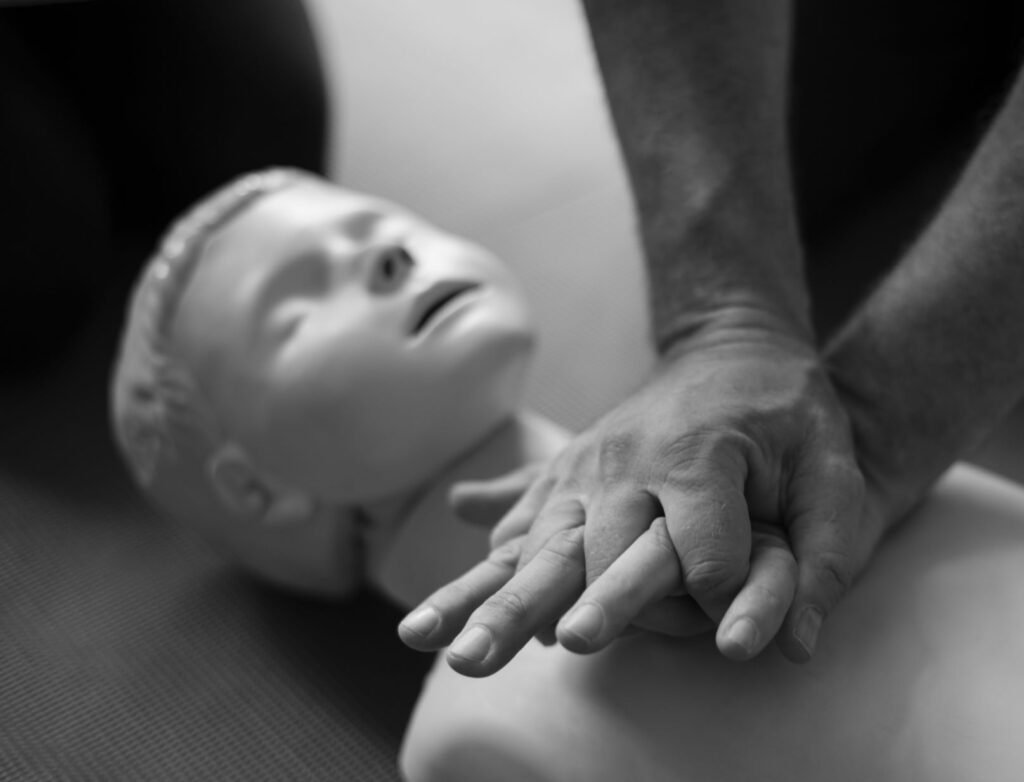Introduction
In the world of education, especially within child care settings, emergency situations can arise at any moment. Comprehending prompt feedback obligations is essential for educators, caretakers, and moms and dads alike. Not only does it include basic emergency treatment understanding, however it likewise involves a collection of methods and skills that have to be understood to ensure the safety of youngsters. From taking care of minor wounds to providing an EpiPen during an allergic reaction, this extensive guide will certainly delve into the myriad duties that feature prompt feedbacks in academic environments.
Immediate Reaction Responsibilities: What to Do When Emergencies Arise
The term "immediate response responsibilities" describes the actions and decisions that require to be taken Visit website when an emergency occurs. These circumstances can vary from small cases like playground incidents to a lot more severe scenarios involving medical emergencies. The focus below is on quick responses that can significantly influence the outcome for children involved.
Understanding Emergency situation Circumstances in Education
Emergency circumstances can vary extensively in nature and seriousness. Some common instances consist of:
- Choking Incidents: Children might accidentally choke on food or little objects. Allergic Reactions: Instances requiring EpiPen management due to serious allergies. Minor Injuries: Scrapes, cuts, and swellings from play. Medical Emergencies: Bronchial asthma strikes or seizures that require instant attention.
Recognizing Bronchial asthma Signs in Children
Asthma is a prevalent problem amongst youngsters and knowing exactly how to identify its symptoms can conserve lives. Usual signs include:
- Coughing frequently Shortness of breath Wheezing audios when exhaling Chest tightness
Choking Prevention Techniques for Educators
Preventing choking events should be a concern in educational setups. Here are some effective techniques:
Age-Appropriate Foods: Make sure that food supplied appropriates for kids's ages. Supervision Throughout Meals: Constantly screen youngsters while they eat. Education on Food Choices: Instruct children about foods that posture choking hazards.EpiPen Administration Protocols
When dealing with allergic reactions, EpiPens can be life-saving tools. Here's just how to provide one:
Remove the EpiPen from its case. Hold the EpiPen securely and get rid of the safety cap. Press the idea against the outer upper leg till it clicks. Hold it in position for regarding 10 secs before removing.Managing Minor Wounds Effectively
Injuries are inevitable when managing energetic children; thus, recognizing just how to take care of minor wounds is essential:
Clean the wound with soap and water. Apply an antiseptic solution. Cover with a sterilized bandage.Child Defibrillation Guidance
For serious instances where a kid might experience cardiac arrest, understanding how to utilize an AED (Automated External Defibrillator) is important:
Turn on the AED and comply with voice prompts. Attach pads as indicated on the device. Ensure no person is touching the child before delivering a shock if advised by the AED.Building Teacher Self-confidence Via Training
Educators play a pivotal duty in emergency situation reaction scenarios; hence it's vital they feel great in their capacities:
HLTAID012 Accreditation Australia Overview
The HLTAID012 accreditation furnishes teachers with required first aid skills tailored albury childcare first aid course especially for instructional environments:
- Duration of training usually extends over numerous hours consisting of both created and practical components. It covers subjects such as mouth-to-mouth resuscitation methods, taking care of injuries, and incident coverage protocols.
Written vs Practical Elements of Emergency Treatment Training
Training programs like HLTAID012 make up both academic expertise and hands-on technique:

|Part|Description|| --------------------|--------------------------------------------------|| Composed|Understanding procedures, laws, and procedures|| Practical|Hands-on practice utilizing mannequins or simulation|
Renewal Timelines for First Aid Certifications
Staying upgraded with first aid certifications is essential for educators:
- Most certifications require renewal every three years. Regular updates maintain teachers educated concerning new practices or changes in protocols.
Childcare Centre First Aid Set Essentials
A well-stocked first aid set is crucial in any type of child care centre setup:
Essential Things Include:
Band-aids of various sizes Antiseptic wipes Gauze pads Adhesive tape Disposable gloves ScissorsFirst Aid Fundamentals for Parents
Parents should additionally be outfitted with important emergency treatment knowledge:
Know how to treat high temperatures effectively. Recognize signs of dehydration or heat exhaustion during hot weather. Create a home-based first aid set customized for childhood needs.Childcare Security Risks Assessment
Regular evaluations assist determine potential dangers within child care settings-- some usual dangers include:
Slippery floors Sharp items within reach Playground devices security checksRegularly evaluating these risks ensures security requirements are continually maintained.
FAQs About Immediate Reaction Responsibilities
1) What ought to I do if a youngster chokes?

- Administer back strikes complied with by stomach drives if they can not take a breath or speak.
2) Just how typically need to I restore my HLTAID012 certification?
- Every 3 years as per Australian regulations.
3) What things are necessary for a childcare emergency treatment kit?
- Band-aids, bactericides, gauze pads, scissors, disposable gloves ought to all be included.
4) How can I avoid playground mishaps?
- Conduct regular evaluations of playground tools and supervise youngsters throughout play actively.
5) What are bronchial asthma activity plans?
- A personalized plan created with doctor describing steps to take throughout a bronchial asthma attack.
6) How do I identify indicators of sensitive reactions?
- Look out for hives, swelling around the face or mouth, problem breathing or wheezing sounds; act quickly!
Conclusion
Immediate feedback obligations are not just tasks; they symbolize a dedication to safeguarding youngsters's health and wellness and health within instructional settings. By recognizing methods associated with choking prevention, EpiPen management, small wound administration, and much more-- educators can successfully respond when emergencies occur while confidently developing count on among parents and stakeholders alike.
By staying educated via certifications like HLTAID012 offer first aid in education training courses and keeping first aid kits stocked-- every person plays a part in developing safe knowing atmospheres for development and exploration while guaranteeing every child's security continues to be paramount!